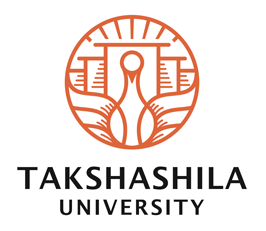B.Tech Information Technology
To meet the growing demands of societal needs Information Technology has played a crucial role and retained it. B.Tech IT directs towards a bright future in the fields of software engineering and development.
Syllabus:
B.Tech Information Technology syllabus includes subjects such as Computer Languages, Web technology, Programming tools and techniques, Network Security and Cryptography, Computer graphics and Simulation, E-Commerce, Computer Languages, and Artificial Intelligence.
Program Outcomes
Engineer and society: Apply to reason informed by the contextual knowledge to assess societal, health, safety, legal and cultural issues and the consequent responsibilities relevant to the professional engineering practice.
Communication: Communicate effectively on complex engineering activities with the engineering community and with society at large, such as being able to comprehend and write effective reports and design documentation, make effective presentations, and give and receive clear instructions.
Technical Skills: Apply the fundamental knowledge to develop computer-based solutions in the areas related to information management and networking.
Leadership Skills: Demonstrate professionalism and ethics in managing academic/ non-academic activities as a team and an individual.
Social Responsibility: Develop an attitude to understand the societal issues and apply the acquired professional skills to provide feasible IT-based solutions
Design/development of solutions: Design solutions for complex engineering problems and design system components or processes that meet the specified needs with appropriate consideration for public health and safety, and the cultural, societal, and environmental considerations.
Investigations of complex problems: Use research-based knowledge and research methods including design of experiments, analysis, interpretation of data, and synthesis of the information to provide valid conclusions.
Project management and finance: Demonstrate knowledge and understanding of the engineering and management principles and apply these to one’s work, as a member and leader in a team, to manage projects and in multidisciplinary environments.
Life-long learning: Recognize the need for, and have the preparation and ability to engage in independent and life-long learning in the broadest context of technological change.
Practical knowledge: Practical knowledge, which is an important part of technical education, can be achieved by a well-equipped Computer Laboratory. The Computer Laboratory is a basic component of the Institute’s infrastructure, providing a wide range of support to the students and faculties involved in research and other academic activities. The Laboratories provides the hands-on need of today’s industry requirements and what they learn in the classrooms. Our curriculum includes a wide variety of subjects to enhance the practical knowledge of the students, which are listed below:
- Data Structure
- Programming languages
- Algorithms
- Operating system
- Computer networks
- Web technology
- Mobile computing
- Web services and XML
Industries Hiring B.Tech IT Degree Holders:
- Government Sector
- Telecommunication
- Data Mining Industries
- E-Commerce Industry
- Biotechnology Industry
- Automobile Sectors
- Security Companies
- Manufacturing Industries
- Warehouses
- IT
- ITES
Jobs Vacancies for B.Tech IT Degree Holders:
- Software Engineer
- Maintenance Engineer
- System Engineer
- IT Analyst
- Programmer
- Support Specialist
- Computer Programmer
- Web Developer
- Network Engineer
- Data Administrator
Conclusion:
Information Technology (IT) is fast becoming a key lever that management can use to deliver operational benefits whether in reducing operational costs, entering Emerging markets, or scaling their business across multiple geographic regions. With advances in technology and its impact on today’s business models, companies are increasingly pushing the boundaries to remain competitive.
Information technology is one key area to do this business need to view IT as an enabling rather than a cost center.
After finish in their education, Information Technology Engineers typically find employment in various areas, including business, government sectors, software companies, academic institutions, sales and marketing organizations, journalism, editing and content corporations, engineering firms, and so on.
